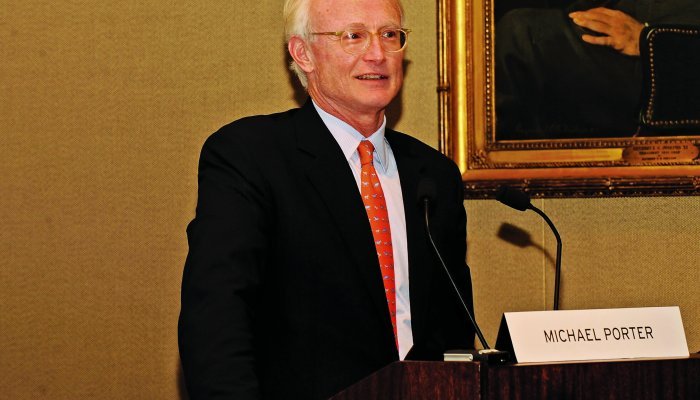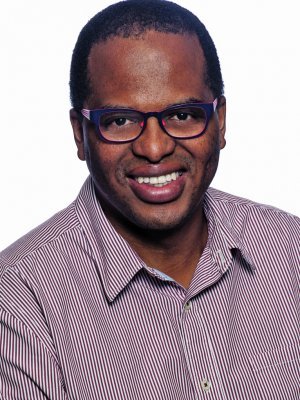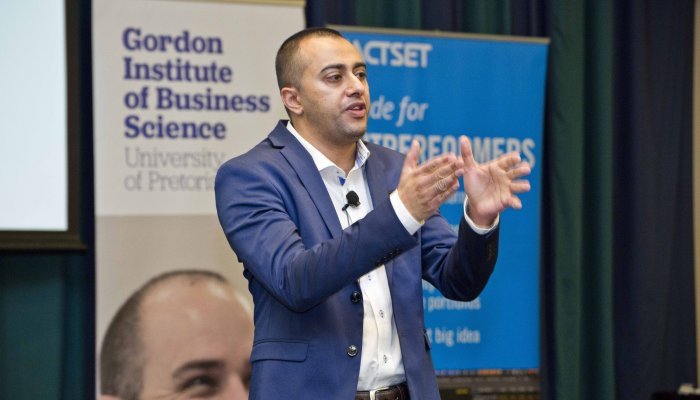In 2011 Harvard Business School’s Michael Porter, together with consultant Mark Kramer, gave the world of business a new buzz phrase: shared value. In the past six years case studies have been written and conferences held in an attempt to crystalise the theory into something practical. South African firms like Discovery and Barclays Africa are converts to a strategy many still don’t quite ‘get’.
Porter and Kramer’s take on the subject was simple: capitalism is under siege and the only way to ensure the longevity of business is to foster healthy societies in which they can operate. Companies that recognise this link stop thinking only about profits and the philanthropic redistribution of existing value, and begin to focus on “expanding the total pool of economic and social value”. In other words, they use innovation to try to unlock new opportunities which have a benefit to society.
Having put the concept out there, Porter and Kramer have given birth to a global industry of consultants and commentators, from Genesis Analytics in South Africa to Kramer’s FSG. In May 2017 Marc Pfitzer, MD of FSG in Geneva, attended the inaugural African Shared Value Summit, held in Sandton. Speaking on the sidelines of the summit, Pfitzer put it this way: “Shared value happens when investors and corporate leaders decide that the purpose of the business is to address societal needs, and those fundamental decisions enable the allocation of resources to the ‘right’ type of shared value innovation.”
What often gets lost in translation is the fact that “shared value is not about sacrificing profit”, stresses Ryan Short, Head of Shared Value Practice at Genesis Analytics. Rather the approach says that profits can be bigger and better if you look for openings which also have a positive social impact. “It’s about seeing what social needs are and building opportunities around that,” explains Short.
In many respects South Africa, and the rest of the emerging world, are already mindful of this kind of thinking, given deep social inequalities and challenges which spur on companies to solve for social needs. Think of Safaricom’s M-Pesa mobile money in Kenya as a prime example of an innovation built around a social need. And it is not alone. Just last year GIBS’ Director for Leadership and Dialogue, Abdullah Verachia, attended a programme with Porter and Kramer at Harvard University in which South Africa’s Discovery Vitality programme was highlighted among the case studies, alongside the likes of Unilever, Nestlé and Walmart.
Reflecting on the fact that a healthcare provider from Africa was included in such august company, Verachia says the concept is not foreign to South Africa. “Enterprise Development is clearly a shared value component, as are many of the components of black economic empowerment (BEE); which puts South African companies clearly – by and large – on the shared value track,” he says.
Short agrees. “In South Africa, BEE means we are far ahead of Porter. BEE is like shared value on steroids. The challenge, because it has been regulated, is that it has become a compliance motivation,” he told delegates at a two-day Executive Education Programme hosted by GIBS in August. Compliance is not the shared value way, rather it asks for a mindset shift, building on similar concepts like social entrepreneurship, the triple bottom line, inclusive business and conscious capitalism.
The difference between these concepts and shared value, explains Short, is that Porter and Kramer have created “a brand that is palatable for the business class, making it acceptable for boards and directors to talk about social concerns, because Harvard said so. But it is not a unique idea.”
Morris Mthombeni, Director of Faculty at GIBS, agrees that while it was Porter and Kramer’s Harvard Business Review article that started the current debate, the idea existed long before. “Few of us really recognise that the likes of the Cadbury family were doing this in 18th century England. Being Quakers, they couldn’t serve in the army, so they were excluded from prestigious universities and high positions in government. They retreated into commerce, but felt they couldn’t exclude others, including their workers,” says Mthombeni, who notes that “we have a chocolate company to thank for what we know today as a pension system”.
What Porter did, says Mthombeni, was “take a dead subject, from a business perspective, and make it sexy again, in the process delivering the concept successfully into the C-Suite. Business people are hard-nosed and to really get them to care about having this conversation is a significant contribution to society.”
How does it work?
Cutting through the rhetoric, in practice shared value can be successfully created through strategies as simple as wellness schemes, recruiting from previously excluded sectors of the population, using local procurement or innovating to take products and services to previously excluded groups. But the real value is created when C-Suite leaders drive the process.
An evolving example of this locally is Barclays Africa, which embarked on what it calls a ‘shared growth’ drive in 2014. Sazini Mojapelo, Head of Group Citizenship at Barclays Africa, explains that the stimulus for adopting this approach came from the 2012 inter-bank interest rate rigging scandal, which claimed the scalp of Barclays CE Bob Diamond. “This scandal opened up discussions around values … and how we can use our core assets and expertise to achieve that which we want to achieve,” Mojapelo told a GIBS workshop.
Because it’s a big ask to shift a massive organisation overnight, the bank started by identifying pilot areas where they could identify social needs, determine the business opportunity and strive to meet those needs. “We started examining the social challenges which speak to us as Africans,” says Mojapelo. They came up with three areas in which to innovate and create value: education and skills, enterprise development and improving financial inclusion.
“Our shared growth strategy is not a CSI strategy, it is a business strategy. It is the heart, front and centre of the business,” says Mojapelo.
But, as Mthombeni noted, without leadership buy-in this approach would have been dead in the water. This is something Mojapelo knows only too well. “You have to have the right personalities and lobbying to move this forward. This is first driven top down. Our chairman, Wendy Lucas-Bull, and our group CEO, Maris Ramos, are driving this,” she says.
Discovery’s Vitality model is another homegrown example which has been supported from the top, and which continues to garner international recognition for its wellness focus. According to Discovery, healthcare costs come down by about 25% for Vitality clients.
As Discovery CEO Adrian Gore commented at the 2016 Shared Value Forum in Australia: “Our epiphany in 1992-1993 was a simple idea: focus on the patient. Focus on the customer. Make people healthier. If you can achieve that, at the individual level, you will bring the demand for healthcare down and, at the same time, if you can achieve that you’ll give people value for money, regardless of whether they are sick or healthy.”
Verachia takes pride in the fact that Discovery is seen as a phenomenal example of shared value: “Discovery has managed, through its strategy over the last 20 years, to save lives through preventative life care. This has resulted in huge member numbers from a business perspective – Discovery holds more than 50% of the South African medical aid industry. Their approach is very much around impacting the lives of people and, in the process, they’ve impacted the entire industry.”
But they also got lucky, admitted Gore back in 2016. “The reality is that we’ve tapped into macro-trends.” This includes the disruptive power of technology and the fact that the nature of risk has changed, making behaviour choices increasingly fundamental to industries like healthcare and insurance. Addressing both has enabled Discovery to incentivise behaviour for the benefit of both the business and its clients.
This ultimately contributes to better quality of life at a human level, says Mthombeni. “For me the value of shared value goes back to improving quality of life. If you do it right and if you really apply innovation as the underpin, and combine resource scarcity, innovation and frugality into a shared value business strategy and shared value social strategy then you start seeing possibilities everywhere you look. Then a problem becomes an opportunity.”
Where to start
Back in 2006 – notably before Porter and Kramer’s 2011 paper – Nestlé first used the term shared value in a social responsibility report in Latin America. Since then the group has rethought its corporate purpose and no longer bills itself as a food processor or distributor, but rather as a provider of nutrition. Defining this purpose in terms of a social need is now their calling card.
Has this rethink worked? Well, Nestlé’s share price has grown from 39.98 Swiss francs (US$41.49) in January 2006 to CHF 82.50 (US$85.62) at end August 2017. Its market capitalisation stands at CHF 251.92 billion, compared with CHF 166.15 billion in 2006 (based on Reuters and Nestlé data). The question remains, however, whether this value is really filtering down into society. Nestlé claims that over the past 10 years its efforts have resulted in more than 50 million children eating better and exercising more, that 207 billion servings of fortified food have been sold, and that four million farmers have received training and assistance, among other impacts.
But, for Mthombeni, the question of whether shared value actually has the muscle to close massive global inequality gaps requires that we interrogate who is setting the agenda and who is determining the nature of societal needs. “If you see shared value only as a positive then I think you’ve missed the point,” he says, stressing that proponents must never find themselves above feedback, criticism and self-reflection. “Consider the words sharing and value. For me the whole notion of sharing implies tension, because somebody has to create value … and then you share it. Do I share after I have finished eating? Or do I share from the first rand that we make? With whom do I share? What are the principles that drive that sharing? When you get into that, then you’ll see that your philosophical view of life will influence the whole notion of sharing.”
While any number of trends are swirling around the shared value debate – from the rise of the sustainably focused millennials, to mass connectivity, inclusive growth, corporate transparency, the rise of automation and ethical consumerism – what they all come back to is what Short calls the need to “innovate to become more human centred”. Or, as David Blythe, CEO of market insights firm Yellowwood, told the African Shared Value Summit: “Stop trying to make people want more things and start making things people want.”
If you are a Discovery member whose Vitality points score you free flights and rewards, then, yes, you’ll see the human centred value. If you are a commuter, then, yes, Uber’s digital convenience is making life easier. But in markets like South Africa – facing 60% unemployment among youth aged 15 to 25 and measured as one of the world’s most unequal societies based on the Gini coefficient – are these high-end shared value interventions ever really going to close the inequality gap?
Just ask the recipients of Dr. Nthabiseng Legoete’s Quali Health primary healthcare enterprise, says Verachia. “She’s an entrepreneur (and GIBS MBA – Ed.) who has embedded a shared value principle into her business, which is now profitable while still being able to provide good quality primary healthcare services. The societal benefit is better healthcare access for individuals in the area, and affordability. It has changed the health profile of individuals in the areas in which she operates [Diepsloot, Soweto, Tembisa and Alexandra].”
Peruse the company’s Facebook page and the impact becomes clear. “This is a 5* service clinic with no coast [sic] at all”, “Your amazing service and heart warming reassuring smiles were what my daughter needed”, and “You guys are a bunch of young, lovely, friendly Nurses and Doctors. You make one feel healed before even drinking the medication.”
That’s how you gauge the effectiveness of a shared value approach, says Verachia: one person at a time.









